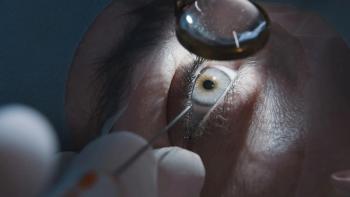
Is omega-3 ‘so 2008’?
San Diego-“The title of this course is appropriate,” said Kimberly Reed, OD, at the opening of her Ocular Nutrition Society presentation, Controversies in Nutrition. The content of Dr. Reed’s course was especially controversial in light of the AREDS 2 report that was just recently released. But the controversy didn’t end there.
Dr. Reed began her lecture with a criticism of the overly dramatic publicity resulting from a piece on omega-3 published in the September 2012 Journal of the American Medical Association (JAMA). The summaries of this research said that omega-3s are not associated with lower risk of all-cause mortality cardiac threat or stroke. However, what’s overlooked is that this was a meta-analysis, she said. It looked at 20 different studies. In other words, these are not all the same type of patient. There was a lot of variation. Too much, she said. Also, the omega dosage range was huge, varying from 0.027 g to 6 g per day. Likewise, age varied greatly, as did the end point, or points-in some studies it was death, in others it was stroke. In fact, a lot of the patients were extremely sick.
“This type of meta-analysis is of little value,” said Dr. Reed, who also questioned what types of omega-3 were used in the JAMA study. Dr. Reed pointed out that risk of sudden cardiac death was reduced by as much as 90% with omega-3s according to another study that was published in the New England Journal of Medicine. Likewise, Dr. Reed also cited a study that found a 27% reduced risk. And, she added, coronary heart disease, specifically, was reduced by 50% in a study by Mozaffarian. This long-term study watched people over 16 years, she noted. “And omega-3s added an average 2 years of life.”
“But what about AREDS 2?” she asked the audience. It used 1000 mg total omega-3 (350 DHA 650 EHA) and it didn’t have much affect in preventing progression from moderate to advanced disease. The Rotterdam study showed a 35% reduction in risk with dietary intake, she noted.
So why did this happen in AREDS 2? Is 350 DHA 650 EHA not enough? Stuart Richer, OD, PhD, nutrition science lecturer who was also presenting at the meeting, said he now recommends double and triple strength fish oils.
Regarding dose, Dr. Reed said, “for most patients 2000 of omega-3 EPA/DHA is required to surpass the 8% Red Blood Cell saturation found to be beneficial in reducing cardiovascular mortality.”ODT
Newsletter
Want more insights like this? Subscribe to Optometry Times and get clinical pearls and practice tips delivered straight to your inbox.





